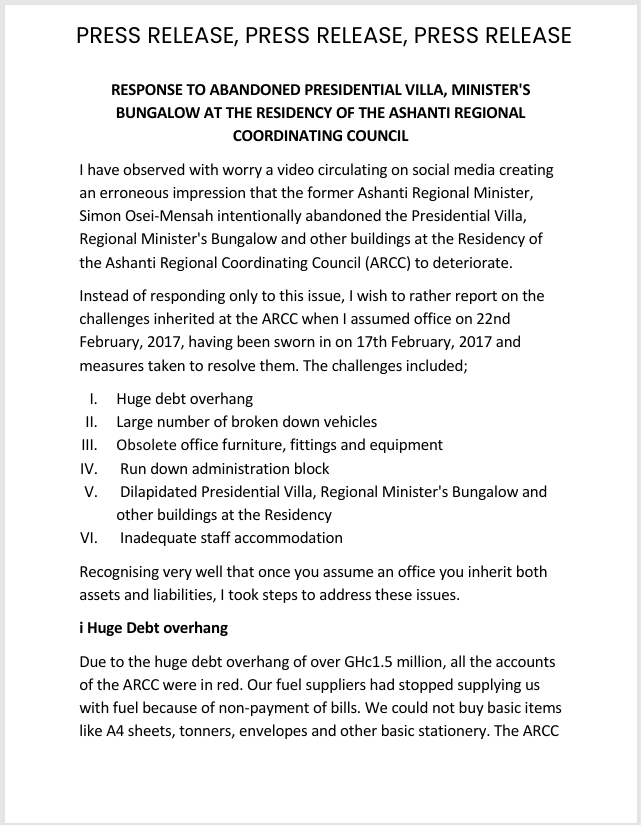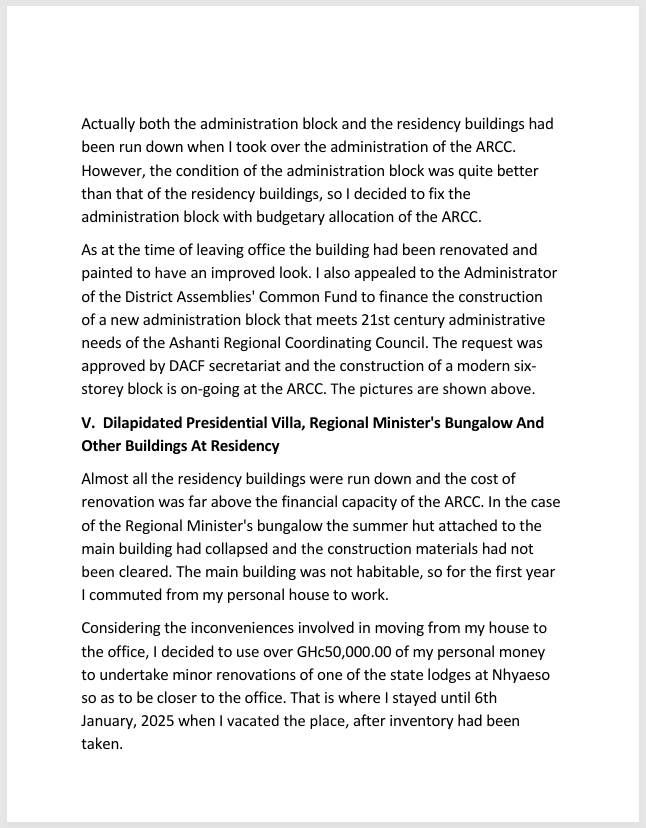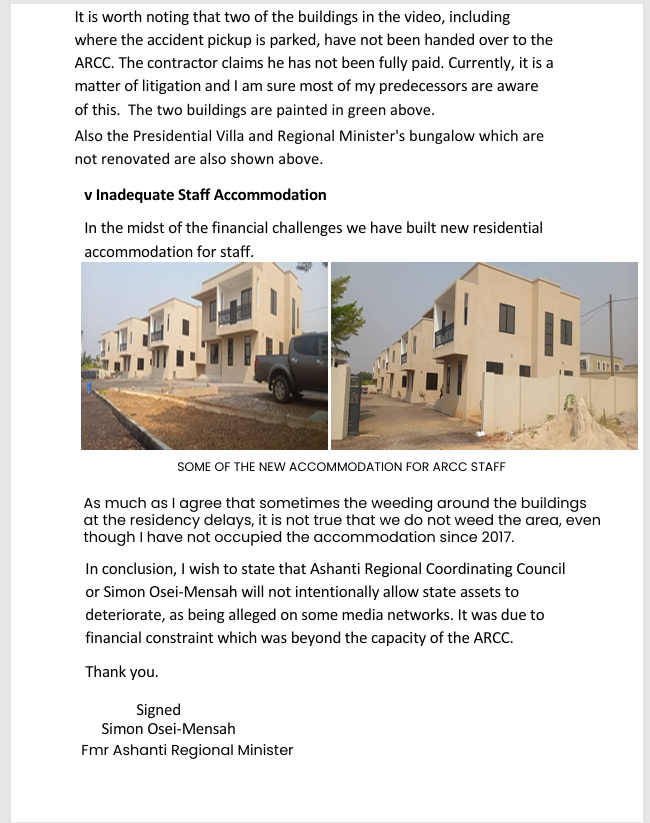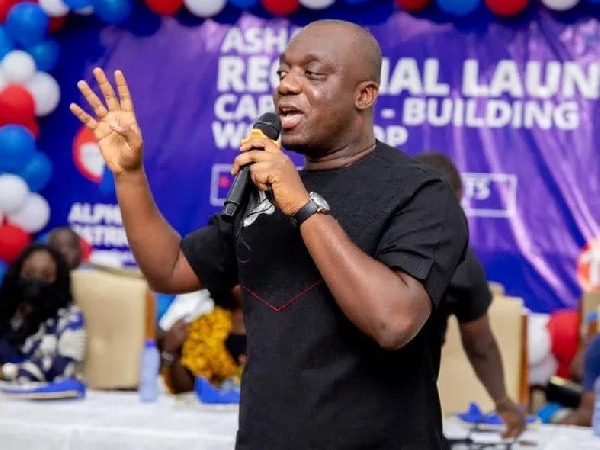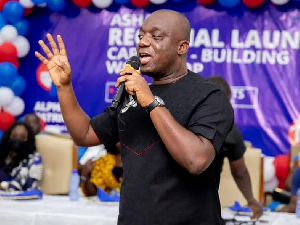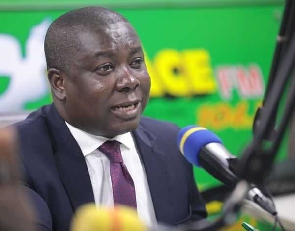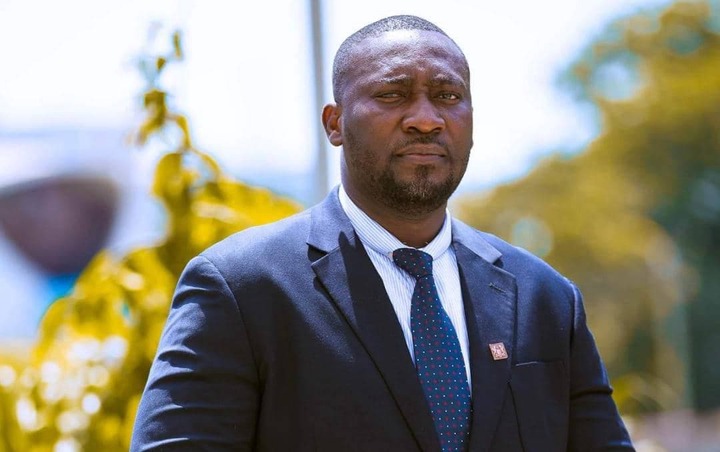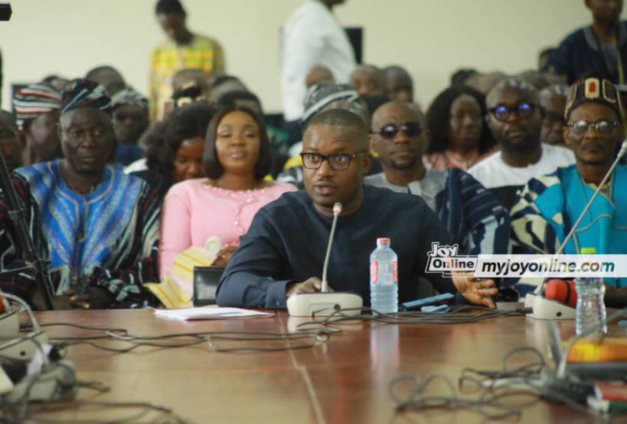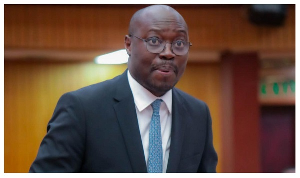Dr. Paul Herzuah
In recent years, Ghana has seen a troubling trend that puts the future of its economy at risk—an inclination within civil society and even among some citizens to prioritize foreign businesses over local enterprises.
While foreign investment brings undeniable benefits, it should not eclipse the importance of nurturing and supporting Ghana’s local businesses, which are vital for long-term sustainable growth.
As a business leader committed to Ghana’s future, I urge us to reevaluate how we treat our local entrepreneurs compared to their foreign counterparts.
The success of our economy depends on our ability to foster an environment where local businesses can thrive.
Challenges of an uneven playing field
Foreign businesses frequently receive preferential treatment that local entrepreneurs do not, such as tax incentives, streamlined regulatory processes, and easier access to capital. Conversely, Ghanaian businesses face significant challenges, from bureaucratic red tape to high interest rates and limited financing options. This discrepancy creates an unleveled playing field that stifles local growth and advantages foreign businesses, which ultimately hampers Ghana’s economic development.
Local businesses are embedded in Ghana’s economy, supporting critical supply chains, creating jobs, and investing in their communities. When economic hardship strikes, local businesses are the ones who remain steadfast, often at significant personal and financial risk. We saw this resilience during the COVID-19 pandemic, which brought economic activity to a standstill.
While many multinationals scaled back operations or withdrew from the market, Ghanaian companies shouldered the responsibility of maintaining critical services and filling gaps left by foreign withdrawals. This experience is a powerful reminder of why supporting local businesses is essential to creating a resilient and self-sustaining economy.
Case Study: The Enduring Impact Of Ghanaian Enterprises
A prominent example of local resilience is the Jospong Group of Companies. Originally focused on waste management, Jospong has diversified its operations to include sectors like manufacturing, real estate, and financial services, supporting thousands of jobs and creating value across multiple industries. This ability to expand beyond its initial focus is a testament to the entrepreneurial spirit driving local growth. Such businesses are not only generating profits within their sectors but also reinvesting those profits into the broader economy, leading to greater job creation, new skills development, and long-term economic benefits for the nation.
Similarly, companies like McDan Group, Despite Group, and FirstSky Group have grown into multi-sector conglomerates, creating thousands of jobs and supporting countless livelihoods. Their success illustrates the powerful role that local businesses play in diversifying and strengthening the Ghanaian economy. These businesses have gone beyond their initial industries, branching out to cover new areas and fill existing gaps, creating more opportunities for Ghanaians and bolstering economic resilience.
The question we must ask ourselves is this: How many foreign businesses or business leaders have succeeded and then branched out into other sectors of our economy? The examples are few and far between. Foreign businesses often concentrate on single sectors and are more likely to exit during economic downturns, taking their investments and jobs with them.
Local businesses, however, continue to be present and active even in challenging times. This difference underscores why fostering local business growth is essential to creating an economy that is stable, resilient, and less vulnerable to global shifts.
The role of civil society and public perception
Civil Society Organizations (CSOs) and the general public play a crucial role in shaping perceptions and attitudes toward local businesses. However, instead of rallying behind these homegrown enterprises, there is often an environment of skepticism. Local businesses face harsher scrutiny, skepticism, and criticism compared to foreign firms, perpetuating the misconception that “foreign is better.” This negative perception hinders local enterprises that are critical to our national economy, creating an environment that undermines their growth and discourages public trust.
This trend stems partly from a historical bias toward foreign investment. For decades, attracting foreign companies was seen as a primary marker of economic progress. While foreign businesses undoubtedly bring capital, skills, and technology, it is time to reassess this outlook and prioritize local business growth as a more sustainable approach to long-term development.
Foreign investments may offer short-term boosts, but local businesses contribute to sustained economic resilience and social stability.
An example of civil society advocacy: The Ghana National Chamber of Commerce and Industry
One CSO actively supporting local business interests is the Ghana National Chamber of Commerce and Industry (GNCCI).
The GNCCI advocates for fair policies, reduced regulatory burdens, and financial support tailored to Ghanaian entrepreneurs.
Its initiatives aim to create an enabling environment where local businesses are protected and empowered to grow, especially in sectors where they directly compete with foreign players.
By fostering public awareness of the importance of supporting local enterprises and lobbying for policy reforms, the GNCCI is reshaping perceptions and encouraging a more supportive attitude toward Ghanaian businesses.
The GNCCI also works to bridge the gap between the public and local businesses through programs that promote collaboration, skills development, and entrepreneurship.
These initiatives help equip local entrepreneurs with the tools they need to succeed and navigate challenges unique to Ghana.
Through such efforts, the GNCCI is contributing to a shift in public perception, reinforcing the idea that Ghanaian businesses are worthy of trust, support, and investment.
Challenges faced by local entrepreneurs.
Local businesses in Ghana face significant obstacles that foreign companies often avoid, particularly in the areas of financing, infrastructure, and regulatory complexity.
Access to affordable capital is a major hurdle for Ghanaian entrepreneurs. While foreign companies can often secure funding from international sources, local businesses are constrained by domestic financing options, where high interest rates and limited access to credit make growth difficult.
This disparity prevents many local businesses from scaling their operations and competing effectively with well-capitalized foreign enterprises.
Infrastructure gaps also hinder local growth. While some progress has been made, many parts of Ghana still lack reliable electricity, efficient transportation networks, and widespread technological access.
Foreign companies, with their substantial resources and global networks, are often better equipped to navigate these obstacles. In contrast, smaller local businesses struggle with the high costs and inefficiencies that these infrastructural limitations impose, which can make it challenging for them to operate at full capacity.
Finally, local entrepreneurs must contend with a regulatory environment that is often bureaucratic and slow-moving.
Navigating complex processes to register businesses, acquire permits, and access government services consumes valuable time and resources, slowing down growth and putting Ghanaian companies at a disadvantage. While some foreign companies receive expedited treatment or even exemptions from certain requirements, local businesses are left to deal with these obstacles on their own.
Why we must support local businesses
The success of local businesses is critical to Ghana’s long-term economic sustainability. When a Ghanaian business succeeds, it does not just create wealth for its owners—it creates jobs, strengthens supply chains, and contributes to community development. Local businesses reinvest their profits into the local economy, helping to build schools, hospitals, and other essential infrastructure. They are deeply embedded in the fabric of our society, and their success is our success.
Supporting local businesses is not just about creating an environment that allows them to survive; it is about creating one that allows them to thrive.
This means revisiting policies that favor foreign businesses at the expense of local ones. It means ensuring that Ghanaian entrepreneurs have access to the same level of financial support, regulatory ease, and public trust that foreign businesses enjoy. And it means changing the narrative that local businesses are somehow less capable or less trustworthy than their foreign counterparts.
We must also recognize the immense potential for local businesses to lead the charge in innovation. Ghanaian entrepreneurs are already finding ways to solve local problems with local solutions, whether through technology, agriculture, or service delivery.
By supporting these innovators, we can create a more resilient, self-sufficient economy that does not rely on foreign investment as its primary growth driver.
A call to action
As Ghanaians, we must take a hard look at how we treat our local businesses. We must ask ourselves why we are more willing to trust foreign businesses with our future than we are to trust our own. We must recognize that the long-term stability of our economy depends on the success of local entrepreneurs, who will be here to weather the storms long after foreign businesses have moved on.
The government, civil society, and the general public all have a role to play in supporting local businesses. We must advocate for policies that level the playing field, provide easier access to capital, and reduce the bureaucratic obstacles that local entrepreneurs face.
We must shift public perception to celebrate the achievements of local businesses and view their success as a national asset. And most importantly, we must trust in the capabilities of our own people to drive the future of our economy.
Local businesses are not just important; they are essential to the growth and prosperity of Ghana.
When local businesses succeed, they create opportunities for all of us. They are the ones who will be here for the long haul, investing in our communities and building the future we all want to see. Let us give them the support they need to thrive because when they do, Ghana will thrive too.
In the words of Mahatma Gandhi, “The greatness of a nation and its moral progress can be judged by the way it treats its weakest members.” Let us stand by our entrepreneurs, recognizing their potential to shape our future and drive our nation forward.
By Dr. Paul Herzuah
The writer is a media & political communication analyst. He is currently a lecturer at the University of Media, Arts & Communication


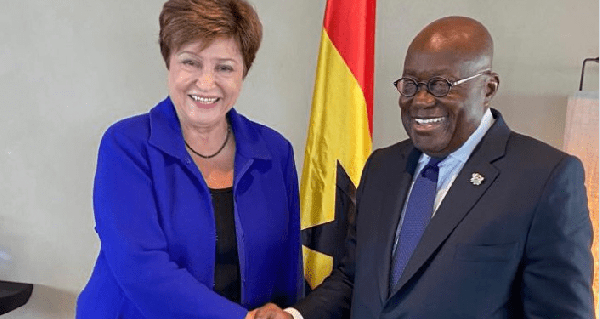
![MD of IMF, Kristalina Georgieva [L] and former President Akufo-Addo MD of IMF, Kristalina Georgieva [L] and former President Akufo-Addo](https://cdn.ghanaweb.com/imagelib/pics/301/30160025.295.jpg)



